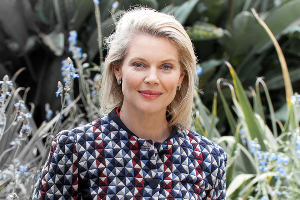
There was a 20% increase in rental enquiries nationwide in June, according to the latest Trade Me Rental Price Index.
Bay of Plenty (up 47%), Southland (up 45%), Manawatu/ Whanganui (up 33%) and Canterbury (up 32%) saw the biggest increases in enquiries.
But Head of Trade Me Rentals Aaron Clancy says stock simply isn’t keeping up with the rising demand with the number of properties available for rent in June down 7% on last year.
He puts this down to higher house prices, which have left people in the rental market for longer, and tenants staying put in response to the tighter rental market.
“Unfortunately for anyone looking for a rental property, this is a perfect storm and as a result we’re seeing record rents, increased competition for properties and less stock.”
The upshot is that median weekly rents have gone up in many regions. Five regions saw strong double-digit growth and four reached new record rents in June.
Southland saw the biggest annual rent increase: it was up 15.4% to a record $300 per week.
It was followed by Otago (up 13.9% to $450), Nelson/Tasman (up 11.4% to $440) and Waikato (up 10% to $440).
Clancy says there is often a lag between an increase in demand and rising rents which means it’s likely that landlords will lift rents if the demand continues to outstrip supply.
“With such high demand, rents have increased in many regions across New Zealand. If demand continues like this we expect to see a lot more record rents over the coming months.”
Despite the increases, the national median rent didn’t move in June, remaining at its all-time high of $500 per week for a third consecutive month.
However, the main centres are still displaying the signs of rental market pressure.
Wellington saw its median weekly rent rising by 12.5% (or $60) on last year to $540 in June.
Clancy says that demand for rentals in the region was up by just 2% on last year, but the number of rental properties onsite dipped 11%.
“With less stock on the market and rising rents, tenants in the capital are having to dig deeper into their pockets.”
In Auckland, the median weekly rent has been flat since the start of the year. It was $560 per week in June, which was a rise of just 1.8% on June last year.
But Clancy says the number of enquiries on rental properties has gone up by a solid 21% on last June while the number of properties available to rent in the region was down 2.7%.
“With demand rising, we think tenants in Auckland could see some large rent rises on the horizon.”
The widespread increase in median weekly rents suggested by Trade Me Property’s data is echoed by new Stats NZ rental figures.
They show that rent prices across all households were up by 1.1% in the June quarter and by 2.7% over the last year.
Landlord advocates have long warned that rising rents are likely in response to housing and tax policy changes as they equate to additional costs in providing rental property.
They have also said that, in response to the added costs, some landlords will leave the rental market while others will not enter it – and this will lead to further reductions in rental stock.
In turn this is likely to prompt increased demand and rent rises.



